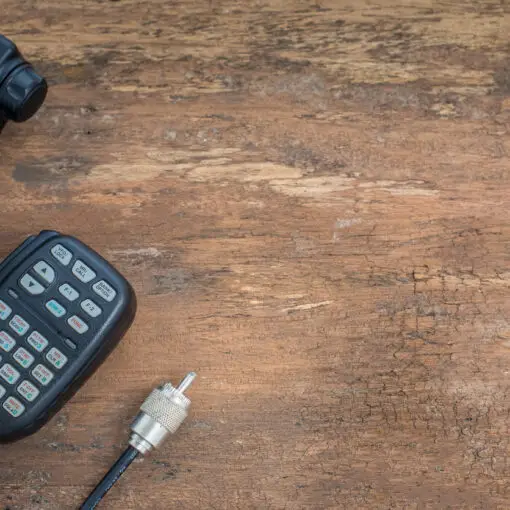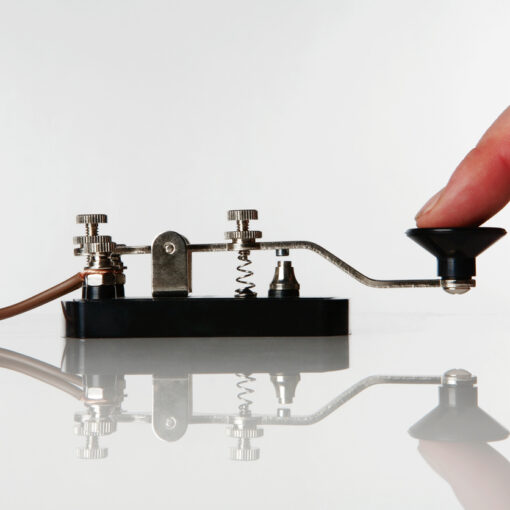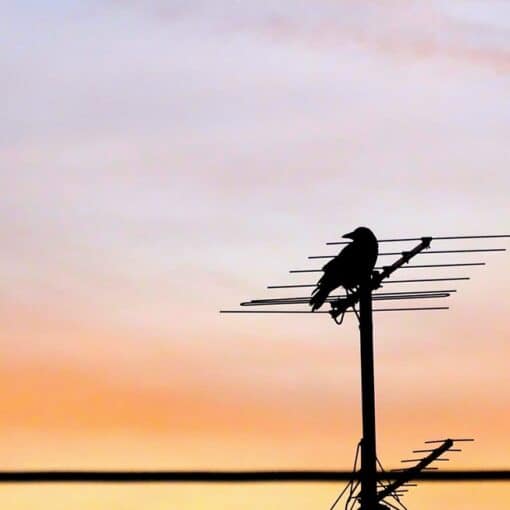It’s no secret that fewer people are entering the ham radio hobby. No surprise, really. Kids nowadays have the internet. They don’t want to sit in a darkened room somewhere hoping to pick up another person attempting to communicate at exactly the same time. Contrary to what some people think, though, we don’t believe ham radio will be dying any time soon. In fact, we don’t think it is going to die at all. There are several reasons for this.
It Hasn’t Died Yet
Yes. This is our first reason.
People have been claiming that ham radio has been dying since the early 80s. Even back then, people were reluctant to pick up licenses just in case there was nobody to speak to.
Guess what? Here we are in 2023, and ham radio is still kicking around. There are still people to talk to. If ham radio hasn’t died by now, it is never going to die.
Ham Radio Tech Is Changing
When people think of ham radios, they often think of some ancient radio device with a crackly microphone attached. Sure, many of those ancient devices still exist, and they are being actively used. However, we are going through a bit of a tech boom in the world of ham radio.
Ham radios are becoming cooler. Much cooler. While it is impossible to change up the design of a ham radio too much, many of the more modern ham radios are far easier to use. Most of them will make it dead simple to find somebody who is broadcasting. Others can sync up with your smartphone for additional channel search features, etc.
Audio tech is improving too. Microphones are clearer (no more conversations with a lot of crackle), and even our radio antennas are better.
This is exactly what the world of ham radio needed. It needed massive advancements in tech. It needed the ham radios to be better. The young generation loves tech, and giving them a rather cool gadget is a great way to draw them in.
Want to know how we know that ham radio isn’t quite on the way out yet? It is the fact that these ham radio companies are investing heavily in producing better ham radios. If the tech was dying, they wouldn’t bother. But, it is clear that there is still a serious amount of cash in it.
As long as ham radio manufacturers continue to innovate, we reckon that ham radio is going to stick around for a good while.
People Think Old Tech Is Cool
Yep. Despite all the advancements that ham radios are making, it is still old tech. There may be some funky new features on a ham radio, but at its core, it is still a low-power radio designed to communicate on the same frequencies it was communicating on decades ago.
We have seen quite a few people fall in love with old tech. Take vinyl music, for instance. Outside of digital music, vinyl is the biggest-selling music format. Yep. It is even outselling CDs. People love it, and they are buying everything they need to enjoy their hobby.
A lot of people are seeing ham radio in the same way. They see it as old, but still incredibly cool. You will be surprised at how many people are willing to jump into ham radio for that reason alone. They just want to experience that older, simpler form of communication. Well, until the ham radio bug bites them and they want to pick up a ton of new kit!
Remember, ham radio can’t be switched off. 30-40 years from now, people will still be communicating on the same frequencies that they do today. A radio from the 60s will still be working then. It is probably the only piece of tech that is never going to 100% die out.
Ham Radio Clubs Are Focusing More On Bringing Youngsters Into The Hobby
Ham radio is still very much a hobby for the old. We bet you that a good 90% of ham radio operators are men in their 60s and 70s. This is because many of them picked up the hobby a few decades ago and stuck with it. It is only recently that these people realized that it may be a great idea to bring some new people into the hobby.
More and more amateur radio clubs are starting to run youth courses, or actively promote their club to the youth. From what we can see, this is something that has had a huge amount of success. In major towns and cities, you will often see amateur radio competitions for the youth, and they tend to get a lot of people competing.
The youth that are enjoying ham radio today will introduce more people to it in the future. Even when the older ham radio operators are long gone, there will still be people advertising the hobby.
Sure, we probably won’t be hitting the dizzying heights that ham radio had in the 60s and 70s. However, the FCC is still issuing thousands of new ham radio licenses each year. In fact, according to some sources, there has been a small rise in the number of licenses issued. Just 1% year-on-year right now, but it does indicate that the effort that the ham radio clubs are putting in is potentially paying off.
Ham Radio Is Important In Disaster Situations
More and more people are starting to become aware of the need to prepare for disasters. No matter which town or city you head to in the US, you will find countless disaster relief groups looking for members. The goal of these groups is to train people to deal with emergencies. Groups like this regularly help out with disaster management during forest fires, flash floods, tornados, etc.
Guess which tech these people rely on during disasters? Yep! Ham radios. Amateur radio is essentially the only communication system guaranteed not to go offline no matter how bad things get. As long as you have a powered amateur radio, then you can communicate.
A lot of these places are guiding people toward picking up ham radios so that they can be prepared for disasters. We are also seeing a massive push on ‘prepping’ websites that suggest picking up a ham radio or two too.
We think the importance of ham radio during a disaster situation is the main reason why ham radio will never die. If it even comes close to dying, then you can bet your bottom dollar that there will be a push from the government to get people into the hobby. This is because government agencies (especially FEMA) rely heavily on amateur radio enthusiasts during disasters. Amateur radio remains the best way to communicate when other communication systems go down and, if they aren’t there, it could cost lives.
Easier To Find Ham Radio Repeaters
Ham radio is all about communication. It exists to converse with people. In the past, you likely would have found dozens and dozens of people in the local area, all loving a good chat. Those times are long gone, though. Nowadays, you would struggle to find more than a couple of people at any one time. Now, we know this can be off-putting, but it isn’t. Communicating with people further afield is now easier than ever before.
If you are into ham radio, then you will know that your ham radio can only operate at limited power. This means that your signal can only go so far. In order to boost your signal, you would need to use a repeater. In the past, finding these repeaters would have been difficult. Unless somebody told you they existed, you wouldn’t know it. Things have now changed.
The internet and smartphones have put repeater locations in the hands of everybody. Anybody that wants to chat on amateur radio can easily find a list of repeaters in their local area and get connected to them.
This means that even if the local ham radio scene dies off, there will still be people that you can chat to, and finding them will be dreadfully simple. Many amateur radio enthusiasts are chatting to people multiple states away. That is how great the repeater network is.
As long as people can chat with others, ham radio will never die.
Final Thoughts
Ham radio isn’t as popular as it used to be, but it isn’t going to die any time soon. Ham radio companies are still investing in improving their tech, and there has been a massive push to get more of the youth into the hobby. It may not quite reach the sorts of popularity that it had a few decades ago, but the future of ham radio is bright. This is a hobby that is never going to die.
References
https://news.ycombinator.com/item?id=28803690
https://spectrum.ieee.org/ham-radio
https://www.itu.int/hub/2022/04/young-radio-amateurs-philipp-springer-yota/





